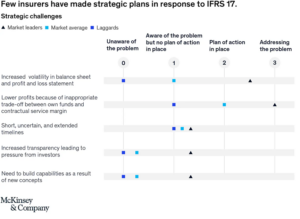In the data-intensive world of insurance, risk is no longer a static variable—it’s a continuously evolving signal. With traditional risk models struggling to capture the complexity of today’s landscape, forward-looking Insurance CIOs are turning to Machine Learning (ML) to architect the next generation of risk intelligence.
At Artha Data Solutions, we bring a foundational belief to every transformation: Machine Learning is only as powerful as the data that fuels it. With over a decade of expertise in enterprise data management and AI implementation, we’re helping insurers reimagine risk—especially in critical areas like health insurance fraud, predictive underwriting for group health, and loan default prediction.
Why Traditional Risk Models Fall Short
In both health insurance and loan underwriting, actuarial and credit scoring models have historically relied on:
- Static demographic variables,
- Lagging indicators (e.g., past claims, past defaults),
- Oversimplified risk categories.
However, today’s risk environments are dynamic—shaped by real-time behaviors, social determinants, lifestyle factors, and external data sources. Traditional systems can’t adapt fast enough. Machine Learning offers agility, personalization, and continual learning—but only with the right data fabric.
Machine Learning in Action: Health Insurance Fraud & Overutilization
Fraudulent claims and overutilization of medical services cost health insurers billions annually. Manual audits can’t scale, and rules-based systems are often circumvented.
Artha helps insurer implement an ML pipeline that:
- Ingests structured EHR data, unstructured claim notes, and third-party data (e.g., provider reviews, drug pricing feeds),
- Applies NLP models to extract procedure inconsistencies,
- Uses anomaly detection algorithms (e.g., Isolation Forest, Autoencoders) to flag unusual billing patterns, such as upcoding or medically unnecessary procedures.
Architecture:
- Real-time ingestion using Apache Kafka from TPA systems,
- ML feature engineering via Databricks on Azure,
- Integration with claims workflow tools through RESTful APIs,
- Explainability via SHAP for each flagged claim.
Business Outcome:
- 28% reduction in fraudulent payouts within 12 months,
- 60% increase in audit efficiency through prioritized case queues,
- Improved regulatory audit outcomes due to model traceability.
Machine Learning for Loan Underwriting: Beyond Credit Scores
Challenge:
In the lending ecosystem, traditional risk scores (like CIBIL or FICO) miss out on valuable behavioral and contextual risk indicators—especially in first-time borrowers or gig economy workers.
ML-Driven Solution:
For a digital lending platform, Artha deployed a real-time ML underwriting engine that:
- Merges KYC, bank statements, mobile usage metadata, and psychometric test results,
- Builds a composite risk profile using gradient boosting (XGBoost) and neural network ensembles,
- Continuously retrains models using feedback loops from repayment behavior.
Data Stack:
- ETL using Talend for alternate data ingestion,
- Scalable data lakehouse with Apache Iceberg on AWS S3,
- ML Feature Store with Feast,
- MLOps pipeline on Kubeflow for model deployment and monitoring.
Business Outcome:
- 35% increase in approvals for thin-file customers,
- 22% reduction in NPA rate by predicting early warning signals (EWS),
- Fully auditable model decisions compliant with Federal Banks and GDPR guidelines.
CIO Checklist: Building AI-Ready Risk Infrastructure
To unlock the full potential of ML in risk, CIOs must focus on data-first architecture. Key enablers include:
Unified Risk Data Lake
- Aggregate data from claims, policy, provider networks, third-party APIs, CRM, and mobile apps.
- Normalize data formats and apply semantic models for domain consistency.
ML Feature Store
- Serve consistent features across models and use cases: fraud, underwriting, retention.
- Enable governance, lineage, and reuse across departments.
MLOps & Compliance
- Automate retraining, performance drift monitoring, and explainability reporting.
- Enforce differential privacy, data minimization, and consent tracking at every stage.
AI Model Governance
- Maintain a central repository for all risk models with versioning, approval workflows, and automated risk scoring of the models themselves.
Strategic Outlook: From Reactive Risk to Predictive Intelligence
The evolution of insurance is not just about digital tools—it’s about intelligent ecosystems. Machine Learning enables:
- Precision pricing based on granular risk,
- Fraud mitigation that learns and adapts,
- Proactive care management in health insurance,
- Hyper-personalized lending even for non-traditional profiles.
At Artha, we don’t just build models—we build data intelligence platforms that help insurers shift from policy administrators to risk orchestrators.
Don’t Let Dirty Data Derail Your ML Ambitions
Machine Learning doesn’t succeed in silos. It thrives on clean, governed, contextualized data—and a clear line of sight from insights to action.
As a CIO, your role is not to just “adopt AI,” but to build the AI Operating Model—integrating data pipelines, MLOps, governance, and domain-specific accelerators.
Artha Data Solutions is your strategic partner in this transformation—bringing AI and data strategy under one roof, with industry accelerators built for insurance.
Let’s Build the Future of Risk Intelligence Together.
🔗 Learn more at www.thinkartha.com
📧 Contact our Insurance AI team at hello@thinkartha.com


